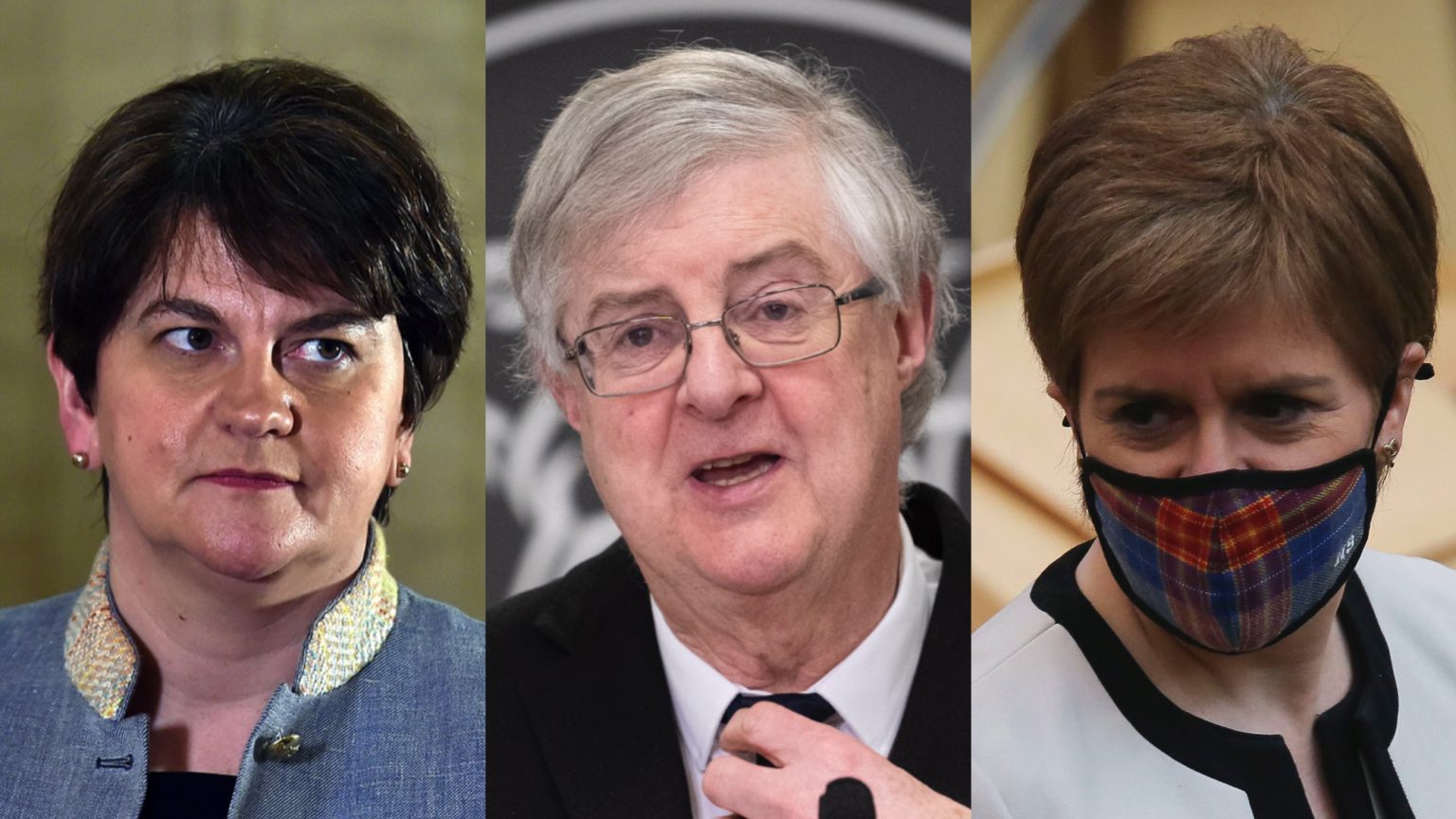The dis-united kingdom of lockdown
The pandemic has shown how little the devolved administrations serve the people.

Michael Deane is to Belfast what Rick Stein is to Padstow. But Padstow always had Cornwall on its side. Deane had to build his restaurant business against all the odds, in a place that was hardly associated with gastronomy. But his success and tenacity were astonishing.
Deane’s eponymous city-centre restaurant was one of the first in Northern Ireland to win a Michelin star. Restaurants bearing the Deane name sprung up across the city, from his brasserie just round the corner from his flagship eatery, to Deane’s at Queen’s, near the university in South Belfast. Deane, along with other pioneers of the Belfast food scene in Northern Ireland’s darker times, took huge risks. These entrepreneurs did so much more to restore civic pride and Belfast’s reputation as a place to visit than anything promised by a hapless Northern Ireland Executive and loudmouth politicians.
When the English lockdown was announced in March last year, it was left to the devolved administrations to implement Covid-response policies in Scotland, Wales and Northern Ireland. Some of us clung on to the hope that lockdown might not be an obvious choice for the devolved regions. But the lure of furlough payments and other Treasury inducements (like Covid business loans) was too much. These Covid emergency provisions were top-ups to Whitehall’s already generous Barnett formula grants to the devolved regions.
Criticisms from the Labour Party that lockdown was too late in being implemented were echoed by the devolved health ministers. Covid, it seemed, was providing an opportunity for virtue-signalling on speed. Scottish first minister Nicola Sturgeon used the opportunity to be seen to take charge with daily, rambling media briefings, where she outlined Scotland’s uniquely Scottish response to Covid. Robin Swann, the health minister in Northern Ireland, suggested that people breaking Covid rules were metaphorically walking into ICUs and ‘slapping a nurse in the face’. In Wales, on the closure of non-essential stores, supermarkets were forced to cordon off non-essential items like books and sanitary towels.
Indeed, while the substance of Covid-response policy was pretty similar across the devolved regions (to an extent because London controls the purse-strings), the nuances and timing of local regulations made the situation in the three Celtic nations feel more ridiculous.
Let’s return to Michael Deane, for example. He quickly made provision for a covered outdoor area that would allow him to accommodate more diners outside his South Belfast restaurant – completed just in time for the second-wave lockdown in Northern Ireland that arrived in October. The outdoor area has never been used despite the tens of thousands of sunk costs.
And now, after Boris Johnson announced a bizarre four month-long phased programme of opening up for England (when most of the vulnerable across the UK have already been vaccinated), we have to wait for the devolved regions to cause even more local confusion and potential delay to our return to normal life.
Sturgeon complained that Boris Johnson’s briefing of the devolved nations clashed with her own daily briefing. Meanwhile, Northern Ireland announced – a week before Johnson’s much anticipated speech on 22 February – that schools wouldn’t reopen until April, and even then not all. This was in contrast to the decision in England to reopen schools to all on 8 March. Meanwhile, Wales’ chief medical officer announced that it was highly unlikely that freely mixing in nightclubs in Wales will be possible after 21 June, despite the English government saying it would be in England.
The result of all of this is a supremely complex web of Covid-nonsense regulation across the UK. More worryingly, it has resulted in policies that will damage business and the prospects for economic recovery. Many in the business community are exasperated, in particular, at the apparent randomness of the policies implemented by ministers and superannuated bureaucrats, who have never experienced the stress of making payroll every month. Never before have public servants across the UK acted so much against the small business employers in their local communities.
All three devolved regions are excessively dependent on public-sector employment. Private-sector employment in Wales, Scotland and Northern Ireland is heavily skewed towards retail, travel and tourism – the sectors most severely impacted by lockdown. Westminster, under both Labour and Conservative governments, has tried to reduce public-sector dependency in the regions. But the response to Covid, nationally and regionally, has punished the very people who have contributed most to the building of greater self-reliance and community pride in those regions – single-minded and hard-working businesspeople.
The enthusiasm with which devolved ministers and their apparatchiks have robbed local populations of their liberty is really quite remarkable. The damage being done to education, business and people’s futures is unforgivable. UK devolution was a badly constructed project. But with Covid, it has become a grotesque parody of what government for the people should be about.
Jeffrey Peel is a businessman, political commentator and writer. Follow him on Twitter: @jeffreypeel
Picture by: Getty.
To enquire about republishing spiked’s content, a right to reply or to request a correction, please contact the managing editor, Viv Regan.











Comments
Want to join the conversation?
Only spiked supporters and patrons, who donate regularly to us, can comment on our articles.